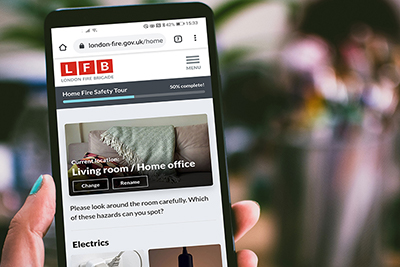CO fumes are silent, highly poisonous fumes that are produced by the incomplete burning of fossil fuels (e.g. coal, gas, oil, wood). CO is difficult to detect because you cannot taste, see or smell it.
This can happen when appliances such as boilers, cookers, heaters, gas fires and solid fuel burners are faulty, have been incorrectly fitted, or not regularly serviced. It can also occur if flues, chimneys or vents are blocked or poorly maintained.
If you believe there is a danger from gas, contact the Gas Emergency Helpline on 0800 111 999.
Carbon monoxide can be produced by:
If your home is a houseboat, carbon monoxide can also be produced by:
It's really important to fit a CO alarm in all rooms containing fuel burning appliances, ensuring that the alarm is able to be heard throughout your home. When sleeping, it is important that your alarm would wake you if it sounds. You therefore may wish to keep a CO alarm in the bedroom. It's also a good idea to familiarise yourself with our information below about the signs of CO poisoning, and learn what to do if you suspect someone may be affected.
All landlords of private residential rental properties in England are required by law to install a carbon monoxide alarm in any room that contains a solid fuel burning appliance (e.g. coal or wood burning fires and stoves). The Government also ‘expect and encourage reputable landlords to cover all gas appliances’. Keep up to date with the regulations.
You are responsible for testing the carbon monoxide alarms regularly during your tenancy and making sure they are working effectively (including arranging for the replacement of batteries or the alarms themselves with the landlord).
Register and maintain your appliances:
If you are concerned about the safety of your boiler or any other appliance or having difficulty with your fuel bills, contact your energy supplier. They may have schemes or grants to help. Get more advice and information on what support is available.
Never take portable or disposable BBQs, grills or charcoal fuel burners into your home or any confined spaces such as a tent, houseboat or caravan.
Even if you have put out the fire, leave it outside and well away from the building or tent/caravan that you are staying in. An extinguished BBQ can continue to produce CO for many hours after it has been extinguished and remember, CO can travel through walls.
Keep you home or houseboat well ventilated.
Look out for:
Poisoning from CO can happen in a matter of minutes or over an extended period of time; it just depends on the amount of CO present.
The symptoms may also only occur when you are near the source of the CO (e.g. in your home) and disappear or seem to get better when you are no longer near the source (e.g. leaving your home).
Learn how to spot the symptoms of carbon monoxide poisoning and what to do
It’s easy to see why some of these symptoms can be mistaken for flu, food poisoning, tiredness or even a hangover!
Keep in mind that pets can also be affected by CO poisoning.
Examples of high level CO exposure over a short period of time include:
A slow build up of CO over a long period of time can lead to serious health problems such as:

It only takes a few minutes to check your home and get tailored advice for your family.